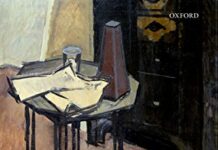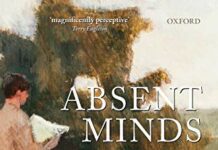
Ebook Info
- Published: 2019
- Number of pages: 256 pages
- Format: PDF
- File Size: 1.59 MB
- Authors: Stefan Collini
Description
This unusual book explores the historical assumptions at work in the style of literary criticism that came to dominate English studies in the twentieth century. Stefan Collini shows how the work of critics renowned for their close attention to ‘the words on the page’ was in practice bound up with claims about the nature and direction of historical change, the interpretation of the national past, and the scholarship of earlier historians. Among the major figuresexamined in detail are T.S. Eliot, F.R. Leavis, William Empson, and Raymond Williams, while there are also original discussions of such figures as Basil Willey, L.C. Knights, Q.D. Leavis, and Richard Hoggart. The Nostalgic Imagination argues that in the period between Eliot’s The Sacred Wood andWilliams’s The Long Revolution, the writings of such critics came to occupy the cultural space left by academic history’s retreat into specialized, archive-bound monographs. Their work challenged the assumptions of the Whig interpretation of English history, and entailed a revision of the traditional relations between ‘literary history’ and ‘general history’. Combining close textual analysis with wide-ranging intellectual history, this volume both revises the standard story of the history ofliterary criticism and illuminates a central feature of the cultural history of twentieth-century Britain.
User’s Reviews
Reviews from Amazon users which were colected at the time this book was published on the website:
⭐The information given on the Amazon page for this book pretty well sums up its content. The author himself provides an even more succinct summary at the end of Chapter 2 : “I am arguing, amongst other things, that literary critics are always, by default, second-hand historians…” As one who – many years ago now – was forced to “[imbibe] the milk of the Eliotic word as pasteurized by Leavis and Scrutiny”, I thoroughly enjoyed the demolition job performed by Professor Collini and I heartily recommend the book to fellow sufferers. Collini explains that temperamentally he is drawn to the microscope rather than the telescope, and the resulting focus on small-scale aporias which when picked at bring his chosen targets’ edifices crashing down about their ears can be very funny. Why not five stars then? Mainly because Eliot and his successors have long ceased to dominate the teaching of literature. The author implies that his argument can applied to the literary criticism of any era, but I’m not so sure about that. He criticises Raymond Williams because his “chosen chronological and national limits impose a kind of false unity of purpose or concern among the figures he includes”. A few pages later however he justifies the fact that his own book “confine[s] itself to a few decades and a single country” on the grounds that a narrow canvas can illustrate an entire topic. The point is arguable and I think the book could have been improved by a brief look at what came before and after Eliot – if only because it would have provided an alternative to the tendentious history set out in Terry Eagleton’s Literary Theory. Finally, a minor quibble: Collini writes that the left-wing social historian Vernon Kiernan took a BA in English at Edinburgh, whereas I believe that Kiernan took a double-first in history at Cambridge and then became a professor of history at Edinburgh. As I said, a minor point, but earlier on in the book an entire argument put forward by Raymond Williams (again) is dismissed on the grounds of a misattribution of a quotation to Macaulay.
⭐A book that I think needed to be written given the infuences it discusses. And it very largely gets it right – but not quite, in important ways.
⭐Terrific read! Collini rereads provocatively and persuasively some of the most influential literary and cultural commentators in the UK of the 20th century. Worth every penny.
Keywords
Free Download The Nostalgic Imagination: History in English Criticism in PDF format
The Nostalgic Imagination: History in English Criticism PDF Free Download
Download The Nostalgic Imagination: History in English Criticism 2019 PDF Free
The Nostalgic Imagination: History in English Criticism 2019 PDF Free Download
Download The Nostalgic Imagination: History in English Criticism PDF
Free Download Ebook The Nostalgic Imagination: History in English Criticism





